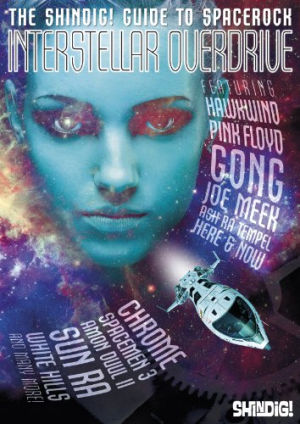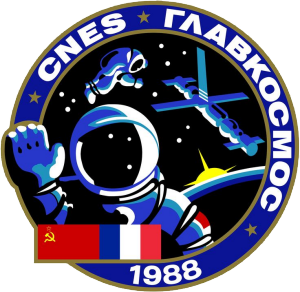2014-02-09
Pink Floyd. Still First in Space. NOT!


Interstellar Overdrive is the name of a January 2014 Shindig guide and it's worth every penny you spend on it. In 35 articles on 170 pages, it tries to define and explore the space rock phenomenon. It has in-dept articles on Amon Düül II, Gong, Hawkwind, Pink Fairies, Spacemen 3, Sun Ra and many others without forgetting the sci-fi movie soundtracks of the fifties (Forbidden Planet!) and the BBC Radiophonic Workshop (Doctor Who!).
In a six pages article 'The Reluctant Spacerockers' the on-off relationship between Pink Floyd and space rock is examined and what an enjoyable essay that is.
While journalists, who are nothing but a bunch of lazy buggers anyway, have labelled the band as space rockers, its members denied this, in particular Roger Waters who reacted in his usual diplomatic style: “Space – what the fuck are they talking about?” Probably the bass player is so demented nowadays that he has forgotten that his lame Amused to Death album features some alien anthropologists trying to find out why all these skeletons are sitting before their TV sets.
Then Austin Matthews chimes in and quite intelligible shows where and how the Pink Floyd used space rock tricks to appease the masses.

Space 1988
There is an error in the article although the author is only partially to blame. (We are just being gentle here, that spaced out sod could of course have done a search on the Internet first.) On page 29 David Gilmour is cited:”To say that we are thrilled at the thought of being the first rock band to be played in space is something of an understatement.”
This refers to the Soyuz TM-7 rocket launch from the 26th of November 1988 five days after Pink Floyd had released their Delicate Sound Of Thunder (live) album. The French president François Mitterrand attended the launch because of cosmonaut Jean-Loup Chrétien, who was the first western European man in space (this was his second flight, by the way, his first was in 1982). David Gilmour and Nick Mason attended because a cassette of their latest album was sent to the MIR space station, apparently on demand by one of the cosmonauts. We'll never know if this is true or just a staged lie but surely there was a mighty PR machine behind the band who made it clear to the world that this was the first rock music recording played in outer space.
Which was not true. Simple as that.

spAce 1987
In 2003, while researching for an Orb biography that would never see the light of day, the Reverend stumbled upon the electronic band spAce who had a million-selling disco hit in 1977 with Magic Fly. The band split in the early eighties but electronic composer Didier Marouani had a particular successful solo career in Russia (and the East-European communist countries), often using the spAce name and logo, depending on the lawsuit of the month that ex-members were bringing on each other.
Marouani's solo work is slightly reminiscent of Jean-Michel Jarre, Mike Oldfield or Tangerine Dream and was (still is) inspired by Russian and American space programs and sci-fi themes. In 1987 he released a CD called Space Opera (got the slight promotional nudge towards his old band?) and that CD was taken by cosmonauts Alexander Viktorenko, Syrian Muhammed Faris and Aleksandr Aleksandrov to the MIR orbital station in July 1987, more than a year before Pink Floyd made all that brouhaha.
In 2003, long before the Holy Church of Iggy the Inuit was founded, the Reverend interviewed Didier Marouani who had the following to say:
I was composing my album Space Opera and I had the idea to bring Americans and Russians together on my album which at that time was very difficult (especially from the USSR). After negotiating with the Soviet ministry of Culture for 6 months I got the authorization to have the Red Army Choir together with the Harvard University Glee Club choir, who were recorded separately.
Following my concept I thought it would be very nice to have this first Space Opera shipped to MIR and then launched into outer space. They asked me to wait while they would study my request and in the meantime I wrote a letter to Mr. Mikhail Gorbachev who answered very positive.
Two months later the Ministry of Space confirmed an appointment. On July, the 2nd, 1987 I was received by the Russian cosmonauts and I gave them a CD, together with a CD-player and 2 small speakers. This was extensively reported in the Russian press.
The cosmonauts left Baikonur on the 22nd of July 1987 and in October 1987 the CD, the player and the 2 speakers were launched into outer space. So my music really floats into space which is for me a very big and happy achievement.
So for sure Pink Floyd did not have the first music in space. During a concert tour in the USSR, I met cosmonaut Aleksandr Pavlovich Aleksandrov, twice Hero of the Soviet Union, again who told me that he worked in space for 7 months, listening to my music. [Note: actually Aleksandrov stayed 160 days in Space in 1987.]

Lie for a Lie
But of course Mr. Gilmour may not entirely have been lying when he said Pink Floyd was the first rock band to be played in space. Didier Marouani's oeuvre is more electronic, new age (and recently: dance) oriented and the Floyd, as we all know, have never flirted with these musical styles before. (Yes, this is called irony.)
The last laugh may be for Didier Marouani though. In 2011 he released an album called From Earth to Mars and it was officially appointed by Roskosmos as the album that will go with the first manned Russian flight to that planet. But we earnestly doubt that listening to it for 6 months in a row will have a positive effect on its crew.
This is part one of the Shindig Interstellar Overdrive review. Part two covers an entirely different subject: Pictorial Press selling fake Pink Floyd pictures!
(The above article is entirely based upon facts, some situations may have been enlarged for satirical purposes.)
Sources (other than the above internet links):
Marouani,
Didier: First In Space, mail to Felix Atagong, 01 June 2003.
The Anchor is the Holy Church of Iggy the Inuit's satirical
division, intended for people with a good heart, but a rather bad
character.
More info: The
Anchor.
Read our legal stuff: Legal
Stuff.

